Looking to increase profits? Implementing these processes has quite literally doubled our profits in the last year. This value-packed episode will walk you through the specific processes we’ve implemented to increase profits with guidance on how you can do the same.
This is probably one of the most value-adding podcasts we’ve ever produced. Listen, take note & more importantly…take action!

Pat 0:00
Hi, Pat, the podcast editor here. How can you turn simple processes into profit for your business? Well, today, Dan and Lloyd are discussing processes they’ve implemented over the past year that we’ve seen profits shoot up. Now, as it happens, I’ve witnessed all of these processes in action. So I can tell you firsthand that what you’re about to hear will change the way you run your business.
Lloyd 0:24
I looked at it, and actually, our profit margin has doubled, the business hasn’t doubled. So we haven’t had to grow double the size to create double the profits, we’re just more efficiently making a profit on the work we do.
Pat 0:37
Now, whether you’re a big team or a small group of two or three, you’re gonna hear about easy-to-implement processes that will completely turn the way you work on its head.
Lloyd 0:45
It sounds so simple, but just each week, making sure that you’re asking each other the questions, whoever’s responsible, we’ve got this really important customer, are we doing a good job for them? Are they happy?
Pat 0:57
Right, let’s dive in. Get yourself comfortable. This is episode 107 of the Business Anchors Podcast.
Dan 1:16
Lloyd?
Lloyd 1:18
Yeah.
Dan 1:18
What processes have we implemented to double our profits?
Lloyd 1:21
Loads of really good ones.
Dan 1:23
Cool. Are we gonna talk about them in this episode?
Lloyd 1:25
We could do.
Dan 1:26
Yeah, I think that’d be good.
Lloyd 1:28
Okay.
Dan 1:28
I’m excited. Because I remember when we started our business.
Lloyd 1:33
Do you remember the time?
Dan 1:37
And we didn’t have any processes?
Lloyd 1:40
We didn’t have any processes?
Dan 1:42
Oh, is it gonna be one of those episodes? Are you gonna say useful stuff in this one or are you just gonna…
Lloyd 1:46
Sorry, that was just Michael Jackson. He was just sat here while I went to the toilet.
Dan 1:52
So we didn’t use to have any processes, did we Lloyd? Like zero, well,
Lloyd 1:56
I would say, I would say we did have processes, but we’ve constantly been improving them. And I suppose we’ve probably got about 300 processes, rather than the one we used to have, like, put the money we earn in the spreadsheet. So we can try and…
Dan 2:10
Yeah
Lloyd 2:12
…know, what we’re doing.
Dan 2:13
And I think we’ve been on a bit of a journey with improving our processes that I think the anchors are gonna find useful.
Lloyd 2:20
Yeah. And I would say, whereas sometimes we, it’s like, oh, we’re talking about what’s happened in our business over the last however many years. This actually has been in the last couple of years, a big shift, like we’ve taken another step forward. And because I was looking at the, you know, the financial year and stuff, and we’ve kind of almost, we’ve had a significant chunk of the year where we had significant changes with our processes and stuff. And it was just nice to know I looked at it and actually, our profit margin kind of profit percentage has doubled since we’ve done that.
Dan 2:59
Yeah.
Lloyd 2:59
The business hasn’t doubled. So we haven’t had to grow double the size to create double the profits. We’re just, we’re more efficiently making a profit on the work we do and delivering great work. So want to talk through some of the big shifts in our processes.
Dan 3:14
Who I’m just thinking like, who would this be useful for? Because if it’s sort of like, say a freelancers listening, a small, one person business, is this useful to them, as well as like a massive company that’s got 1000s of employees?
Lloyd 3:28
Yeah, I would say so. I think the absolute perfect person is if you have more than one person, so if there’s two, if there’s two of you or more, and that could be in your like department, or that could be the whole business depends on the size. So if you’re like, leading a team of people, and there’s eight of you, perfect, or if you’re a small business, and there’s 15 of you perfect, but yeah, some of the processes if you’re just a person on your own, but I would say to people, and it’s all going to be relevant.
Dan 4:01
And what like in terms of priorities, I guess you’re going to share lots of great processes and things that people can do to and what we’ve done, Where would people start? What’s the like, priority?
Lloyd 4:14
My first so the first process that we’ve implemented that I would change and we’ve mentioned it before, but I’m going to mention a bit more detail about why it’s so good and how it’s how to work it all around the weekly meeting and the and just before you stop listening I’m not just saying have a meeting because that obviously sounds crap and won’t help but it’s how this works on what goes on in this meeting. So we went for obviously we had meetings previously when they are with kicking off this project. Okay, let’s get together all we want to talk about this. Let’s get together. But since we had our weekly… officially, it’s called a weekly pulse. It’s been an absolute game changer. And part of the reason why so a lot of businesses actually have a monthly meeting to kind of be like, Okay, guys, let’s reflect on what’s happened this month and talk about anything for next month. I think that’s quite a common thing. But the issue with that is that you get this increased level of activity, just following any meeting about anything. So say you have you just have a general meeting about how is the business going this month, in the two days after that, you’ll have a load of actions for people like oh, right, we need to do that to improve.
Dan 5:34
You do this, you do that.
Lloyd 5:35
You have this increase in this spike in activity, almost looks like a pulse. And that happens once a month. So the idea of having these weekly things is basically…
Dan 5:47
More pulses?
Lloyd 5:48
Exactly. You have more of these spikes in activity to improve things, you’ve given yourself in a month four or five chances to do loads of good stuff to improve things rather than one a month. So businesses that grow and improve, have this constant thing of going off what we’re doing, what we need to change rather than reflecting a month later and going, Oh, that wasn’t good. We’ve been doing that all that time.
Dan 6:12
That was one of the things I was gonna say something that I find really beneficial is a more regular reminder of things that we should be doing to move forward rather than the once-a-month thing. It’s like, oh, that hasn’t quite…
Lloyd 6:23
Well, the absolute game changer. Nothing shit happens for longer than a week.
Dan 6:29
That is true.
Lloyd 6:29
Do you know what I mean, like, that’s the if there’s any part of our business that we’re actually not, we’re not doing this quite right? Or like, there’s been a miscommunication between two people in the team. And they think like you’re doing it, or I’m doing it, and it’s, it’s fallen through the cracks. It’s then brought up on a Friday, and we make a change. And I think, obviously, like, no one’s perfect and no business is perfect. If you don’t have these opportunities to realise something’s not going well, and improve it…
Dan 6:58
Yeah.
Lloyd 6:58
…there’s gonna be loads of crap stuff going on.
Dan 7:00
So I reckon anchors are going to be listening or watching thinking, Yeah, okay, this weekly meeting thing, the pulse, you know, more regular activity. Sounds good. What is in the weekly meeting? Or what, what do I do in a weekly meeting? Because we kind of mentioned making sure things that are shit don’t go on for more than each week?
Lloyd 7:17
Yeah.
Dan 7:17
What do you want to give an insight into what the meetings are and what we talk about?
Lloyd 7:22
So yes, I’m gonna get into a couple of the different things. But the main reason like we hold each other accountable. So we have a section where we talk through client projects, and someone is accountable for that. So if something’s not going, right, we can ask those questions and talk about it. And we have a section where we can discuss any issues or ideas or anything. And the main thing is like we set actions as part of that we never just go, Oh, that’s not working. Yeah, that’s, yeah, you’re right, that isn’t working. Okay, what’s the next thing to discuss? It’s always like, oh, yeah, that’s, you know, whether that needs improvement, or we missed the trick there. Like that could have been a bit better? Or what, how can we improve in the future? And then, okay, as an action, who is moving that forward? And what are they doing? We write down the action, and the following week, we check that it’s been done. And it’s weird, I think, as humans, like, even like every before this process, we had a brilliant team. But every like, and they’re still those brilliant people. But we all need someone just to check it. I feel like, even if you’re really organised, need someone to go, have you done that thing yet?
Dan 8:43
So the accountability.
Lloyd 8:44
Yeah. You know, that thing you said you were gonna do? Have you done it, and the fact that we have a process? And it’s like, right, each of us knows the little things we need to get done this week to move things forward to improve. And also to know that your colleagues around you and your friends, it’s going to be rubbish if each week you go into it going, naa didn’t do it again. I mean, obviously, that would also highlight to us as management that there’s an issue, but none of us wants to come in because I’ll admit that I’m not perfect. And it sounds strange.
Dan 9:14
Really?
Lloyd 9:15
And when I’ve missed something, and I’ve come in, and I’ve had to go, yeah, it didn’t get round to doing that action. It feels rubbish. Because everyone around you is working hard.
Dan 9:26
Points and chants of shame.
Lloyd 9:27
Yeah, yeah, that’s our process. So I think that’s why it’s so, so good. We all hold each other accountable. And we’re all pushing each other to achieve the best things we can achieve, rather than things just get forgotten. And it’s an example of that this right, yeah, this podcast set. We, before we had this process of this weekly meeting. I believe it had been eight months that we kept saying, Oh How’s the new podcast set going? When are we going to get started with that? And we started having this weekly meeting. And two weeks later it was done. And it was because we, the first week, so who, who’s actually going to do this then? And when is it going to happen? And we set the actions.
Dan 10:13
And then it got done.
Lloyd 10:14
Yeah.
Dan 10:14
Simple.
Lloyd 10:15
Absolutely brilliant. So yeah, that that weekly meeting so important as a process, but going into some stuff that we discuss in that meeting, but key processes second key process, Dan.
Dan 10:27
Yep.
Lloyd 10:29
Sounds stupidly obvious. So don’t judge us that we didn’t do this before. But tracking time and money. Sounds stupid. But I think so many businesses are run on just to do less of like, Oh, I’m working on this thing. Keep doing that, oh, that took me a couple of weeks to get through that. And you never know what time you’re spending on things and that kind of thing. Well, now we’ve started and this is something that’s reported on in the meeting. So you know, it’s happening. But now that we’re tracking the number of hours and days that we spend on a project, we know, we can actually know if it’s profitable or not.
Dan 11:07
I remember when we started the business, and it was you and I was more naive. We had no idea how long things took. So we never knew our capacity. So we would just say yes to everything. And never know if we had the time to do it or not, didn’t we?
Lloyd 11:24
Yeah. Oh someone wants to work with us? Well, obviously, we’re gonna say yes. So and then then you just panic trying to do it. And the thing is, if you don’t track time and stuff, it’s like, either you’re going to do a bad job, because you haven’t got the time to put into it for your customers, or you’re not going to make a profit, because the amount of time that goes into something you’re not charging enough, or the other way around, you’ve charged far too much for the value they’re gonna get. And then they’re gonna go, this is absolutely terrible. We’re not going to work with you.
Dan 11:54
It’s simple, but it’s just so important, isn’t it?
Lloyd 11:57
Yes.
Dan 11:57
Track what you’re charging for a piece of work and how long it’s taking and make sure you’re sticking to the plan.
Lloyd 12:03
If you because then you can look at it go, Oh, Mary spent six days on that project. But only when we quoted we only charged for two days. Oh, terrible idea. Let’s never do that again. Have you? Have you said that? Is it TikTok. Do you send the video where someone’s there’s a lady going, Mary? Mary? And she’s just chasing around looking for his calling her?
Dan 12:25
Oh, I have seen that.
Lloyd 12:27
Yeah that’s me, and she’s like running around outside and she’s going Mary. Anyway, the name Mary made me think of that. Search Mary’s video, maybe I’ll find it. But yeah, also it really, when you’re tracking time and money spent on projects, which again, sounds so obvious, but I know there are people out there, and a lot of businesses out there not doing this accurately. You can look at different types of projects. And if it’s like, oh, that thing Steve’s been doing, he spends all the contingency of the budget on time and money consistently on that type of project. So we’re only making like a 0.1% profit margin. And then there’s another type of project where it’s like, we only have to we, we quoted for 12 days of our team’s work, it only takes five and the customers super happy, we’re doing great work, you can take actions and invest more time in trying to get projects like that, that are far more profitable, you’re getting happy customers. Without that, it’s just all just happening.
Dan 13:30
It’s all guesswork.
Lloyd 13:30
And you never know, especially if you’re a bigger team and you have levels of management, the management at the top will just be like, well, the projects are getting done. They’ve been done in the time, they’re supposed to, by the end of a couple of months, they’re supposed to be done. And you can never improve on what you’re currently doing.
Dan 13:47
And from understanding this from a kind of sales perspective, which is what I’m responsible for. I know how we should, the types of people we should be targeting and what types of projects we want to be doing. So I can shape our messaging and the content we’re creating to attract more of those opportunities so that we’re doing more work that’s more lucrative for us that we do a better job with, that we enjoy doing, and that actually helps us have a sustainable business.
Lloyd 14:10
Yeah. Great. My next point…
Dan 14:13
Give me some more processes, Lloyd.
Lloyd 14:15
I feel like everything I say sounds so simple. Don’t judge us. I’ve called this client to check. This is part of what we report on in the meeting. But for your business, this could be anything that is basically checking your customers or your clients are happy, however, you would do this. For us. We have like a number of clients where we can go through each one. And whoever is responsible, we can check that it’s in a good place or in a bad place. And again, that thing we said about how we’re basically checking nothing shit happens for longer than a week. If we have any client projects where something’s not quite right or we’re worried that we’re not going to do a good job for that client. Within a couple of days. We have that conversation in the meeting and then we work out actions to make sure they are happy. And I think it sounds so simple. But just each week making sure that you’re asking each other the questions, whoever’s responsible, we’ve got this really important customer, are we doing a good job for them? Are they happy?
Dan 15:15
It gets picked up on a weekly basis, something maybe we have dropped the ball somewhere, but we can then take the actions to bring that back.
Lloyd 15:23
Because we’re at the point now, where we usually are dealing with it so quickly. We, resolve it before our customer is aware that there could have been an issue because we’re actually picking out rather than a problem go on for four or five weeks, and then the customer come to us and go, really not happy with this. We’re picking up before they’ve had any negative experience. And if you’re a product company, and you’ve got you to know, it’s you’ve got 1000s of customers, so you can’t say to each one oh has Tony Godard happy with this. Is that a real person’s name? I don’t know.
Dan 15:54
It rings a bell. It’s probably someone.
Lloyd 15:55
Yeah, I said, I tried to make up a name then I said it. And I feel like I recognise it.
Dan 15:58
Is it like a family friend or something?
Lloyd 16:01
Oh, uncle Tony. But yeah, you can be looking at, you know, your reviews, like if you’re looking at reviews each week, and you go, Oh, it’s dropped from a 4.8 out of five average to a 4.1 was clearly something’s happened that you need to address and you can take action. And it sounds so simple, just checking that, but it’s an absolute game changer for constantly making sure you have happy clients. And also, like, spending the time to actually have someone say, Yes, everything’s fine. It’s, I found an interesting thing when you’re checking with people, if customers are okay, or projects are okay because they normally I’d say 99% Yeah, it’s all fine. And then occasionally it will be followed up with Oh, except, you know, they haven’t paid. And they said that they’re not really selling those products anymore. They’re going in a different direction. And it’s like, Huh, you just said yes, they’re fine. And then so that stuff. And it’s kind of like sometimes a couple of small things have been said with a customer or you’ve noticed a couple of different things. And it’s just a prompt to get that out there into the room.
Dan 17:08
Yes.
Lloyd 17:09
And have that discussion, which is really useful. And it might be that that person has heard, or you know, say it’s a product business as well. Oh, yeah, it’s fine. Except, you know, obviously, reviews have gone down a bit because the deliveries now take two weeks instead of one. And then suddenly the person in charge of deliveries that didn’t realise that was the case, Like what? Why are they taking two weeks now? And then you resolve that issue? Yeah, crazily important. Basically, the processes make sure your customers are always happy.
Dan 17:37
Yeah.
Lloyd 17:38
It’s really important.
Dan 17:40
Love it.
Lloyd 17:40
Nice.
Dan 17:41
What other, give us some more processes, Lloyd.
Lloyd 17:43
Okay.
Dan 17:44
In this really exciting episode. I’m joking, I’m joking.
Lloyd 17:48
I’ll have you know my solo episodes did alright.
Dan 17:54
Honestly, I’m joking, I do like this is really useful stuff. Give me some old processes that will help me double my profits, Lloyd.
Lloyd 18:01
This one, we’re in a real minority with the focus we put on this.
Dan 18:05
Okay.
Lloyd 18:05
For most businesses, it’s a box-ticking exercise and completely not useful. Because they don’t bother with it. But I’m going to say, appraisals. As in like, regularly every three months, we sit down with absolutely everyone in our business, one to one, and talk through how things are going. That makes it sound rubbish, talk through a lot of things. And I think these are so undervalued by businesses, just because and I still think like some of our team might be like, oh gotta go and sit down and do that. But the value we get from having those conversations, think because ultimately, people that are here that are brilliant. We want to make sure that they’re really happy with their job and that anything they want to try that they’re not currently doing or anything they’re doing that they’re not enjoying or struggling with. We want to have those conversations so that those brilliant people can be supported to do a brilliant job and continue to be really happy within our business. That makes complete sense for any business that wants to do a good job for its customers.
Dan 19:12
Yep.
Lloyd 19:12
Right? And again, like the thing I said, of like actually asking the question, oh, that client? Are they happy? Day to day, things might not come up. But if you actually look someone in the eyes and like, are you happy with this thing? Or like, is there anything that you’re struggling with? That prompt of actually just focusing on that conversation makes people actually come out with their honest opinion. And it might just be a small thing of like, oh, yeah, it’s good, but it’s a bit annoying that Steve punches me in the face at lunch. And then you’re like, Oh, I didn’t even see Steve doing that. Okay, I can deal with him and say, Come on. Stop punching Tim.
Dan 19:12
Yeah.
Lloyd 19:57
Because he doesn’t like it. But there are relatively small things that I just think, make a huge difference. So retaining great people and also steering people in the right direction. Again, like we’re saying that weekly thing of like, nothing shit happens for longer than a week because of our weekly pulse meetings. With a review with everyone every three months, if say, we might be working with one of our team and thinking like, all this stuff, absolutely brilliant. It’s like there’s this little bit that thing, actually, they’re going in a bit of a wrong direction. Like, it’s not very good. Being able to give people a nudge every three months of like, oh, by the way, like, this is all great, but this thing, maybe shift your focus a bit or do them slightly differently.
Dan 20:37
Support them to get better?
Lloyd 20:38
Exactly.
Dan 20:39
It’s making them aware of the things you’ll be doing.
Lloyd 20:41
I think far too many people, like managers or business owners or leaders, are thinking shit things about the way people are working,
Dan 20:49
But not communicating it.
Lloyd 20:50
But not communicating anything. And then you think like how no one comes to work, well, very few people come to work and are like, tell you what, I’m gonna do a shit job today. But like, there may be things that aren’t quite going right and without having those conversations…
Dan 21:04
And then they have the opportunity to take the actions needed to improve or not.
Lloyd 21:09
Yeah.
Dan 21:10
And then they’re either going to progress in the business or it’s going to get to the point where they…
Lloyd 21:14
I’ve just found it so useful. And it’s that thing, even if you think things are obvious, I would say the things that you think are obvious, they’re not obvious. So so many times in appraisals, either I have thought, well, of course, they know this thing, that way of thinking or, of course, they know what they’re doing with that. And then you actually sit down and it’s like, no, it’s not obvious like they like either. So it could be someone’s absolutely brilliant. And I’m like, well, obviously, you know that we think you’re doing a brilliant job. And it’s like, oh, no, I didn’t really know that. But that’s really good to hear. Or like, well, of course, you know how to do this. And you’ve been doing this and they’re like, oh, no, I haven’t been doing that.
Dan 21:55
Yeah.
Lloyd 21:56
I think don’t ever think something always makes the time and an effort to have those conversations.
Dan 22:02
It’s these simple things that have the biggest impact as well.
Lloyd 22:04
Yeah.
Dan 22:04
Everything you’re saying your caveat thing with this is really simple. But it is those things that have the biggest impact.
Lloyd 22:11
It’s also giving people the opportunity, having that open thing of like saying critical things to me potentially, or about the business in other areas that it’s like, you know, this is good, but Lloyd actually, you don’t really do this. And that’s rubbish. And so that we can ask those questions and improve.
Dan 22:27
Yeah.
Lloyd 22:27
Because I think some people and businesses don’t do the appraisals at all when they like, rubbish. So don’t get the benefit. Some do it but purely on a like, right? This is your appraisal, I’m gonna tell you what you’re good at and what you’re not good at and what you need to do. But having the two-way thing is so important. And trying to make sure people are confident to say like, I don’t really like how this is done. Or you can make this hard for me because of this.
Dan 22:28
Nice.
Lloyd 22:29
Do you want one more?
Dan 22:32
Go on, give me another process.
Lloyd 22:36
Okay one more, if you insist. It’s one that I’ve said. I’ve mentioned it before, so we won’t go into a huge amount of detail. People. If you’re right, if you have heard this before, you’re a big Business Anchors fan, okay? You know, that I love forecasting, profit, turnover and cash flow. And we’ve worked with like, we worked with accounting, they’re like you with your accounting, like you focus on this in much more detail than most businesses your side, and I’m always Why are you smiling at me like that?
Dan 23:30
I was just thinking when you said that you must be really fun at parties.
Lloyd 23:33
Yeah. Hi, nice to meet you what do you do? I’m pretty big on forecasting cash flow, actually. What? You don’t want a second date? So we worked with a bookkeeper recently, actually. And they were even questioning like, why do you do this? Other businesses don’t do this and this much detail that you don’t need to do this? And I was obviously like, yes, we do. Because we want to be better than the average business. And I’ll just briefly talk about why I think it’s so important. So a lot of people and what we’ve discussed in the past is like, you need to be forecasting how much money you’re making, and how much cash you’ll have in like the next few months. Because you want to avoid, obviously, you want to avoid not having enough money.
Dan 24:26
Yeah.
Lloyd 24:26
Like this disaster thing of like, oh, we can’t pay people’s wages, because we haven’t really looked ahead. And we don’t know, we didn’t know we were losing money. Obviously, that’s a really negative thing for the business.
Dan 24:37
Risk prevention.
Lloyd 24:38
But on the other side, and the people don’t think about it if you’re really good at forecasting your future state of how much money you have in the bank, or how much profit you’ve made. You can go the other way and actually make sure that you’re using all of the funds you have within the business in the most efficient way possible. Because basically anyone you’re in your business as a business owner if you’re trying to make money, it’s like, oh, we’ve got this part of £10,000 is like how can we make that £10,000 into £20,000. And for us, it will be like investing in people like hiring more people or investing in camera gear or anything like that. Without this forecasting, you don’t know that you are going to have that money in the bank.
Dan 25:18
Guessing game.
Lloyd 25:19
You can’t make those clever decisions to invest in things that will help the business in the future. You can’t decide to give that person a pay rise, because you’re concerned that the money’s not going to be there in the next three months when they need that pay rise to be motivated to do the best job they can do and to want to stay with you long term where you can’t buy that new camera or piece of equipment, because you don’t know it’s there. So… I’m gonna stop talking about processes and cash flow. But that is why forecasting is really good. And will help you double your profits.
Dan 25:32
Well, just a question that so I because I am taking the piss, but I do think forecasting and these things have been really beneficial to our business. If someone’s listening, and they’re like, Well, I want to get I want to start forecasting. And you can’t give a step-by-step thing now because I’m sure there are lots of steps. But when you first when we first started doing this, what what? What resources did we go to? Or where did we look for helping how to forecast?
Lloyd 26:18
Well, I’d say, any accounting software you use will have a budget capability, you can look back on every previous month’s expenses and base your future budgets on that. So it’s like oh, I spend £190 on cleaners for the office each month. So you can budget that for the future months, you know that you need the office cleaned, that’s going to be a cost. And then any sales projection. So either you might work in a service-based business where you’re like, I know that we’ve got this ongoing thing with these customers, and this is the money coming in in the next two months. Or it might be that you’re selling products, and you have projections based on what’s currently happening. And you can kind of say, that’s the income we’re currently expecting to have. And that will allow you to then see, Oh, are we planning on making money or losing money or breaking even in three months’ time? Are we going to have loads of cash in the bank or because of timings of when we’re paid for certain things or money goes out, are we going to have not much cash at that point?
Dan 26:44
And we use zero?
Lloyd 27:22
Yeah.
Dan 27:23
So that like there’s software that can help you?
Lloyd 27:25
Yeah.
Dan 27:26
To do this. And…
Lloyd 27:26
Yeah, and with Zero with the budget manager, it’s all built-in so you can see what’s been spent in the past and put your figures in for the future and then have a really simple, effective process that doesn’t take a lot of time to get to that point.
Dan 27:40
Cool.
Lloyd 27:41
Not cool.
Dan 27:43
No, well, useful. Sorry, I should just say useful.
Lloyd 27:45
Useful. Useful, yeah.
Dan 27:48
Thanks, Lloyd.
Lloyd 27:49
I’m a pretty useful guy.
Dan 27:50
I genuinely think those process changes are going to be really helpful to our listeners.
Lloyd 27:57
Good. I hope it is anchors.
Dan 27:58
If they’re still awake.
Lloyd 27:59
Yeah. And shall we wake them up? Oh. Oh, you literally did set an alarm to wake them up.
Dan 28:08
I never do that.
Lloyd 28:10
Normally, we’d cut that out. But that was perfect. That was sorry. That’s to wake you up, listeners. Because we’re ending that episode now. So hopefully the next one’s good. All right.
Dan 28:24
Will we see them in their ears next week?
Lloyd 28:27
Probably not after that one. No, of course, we will that was useful. So see you in your ears next week.
Hopefully, these processes help you double your profits! If you have any more questions, then why not start a conversation with us here at Knowlton.




























We've always wondered if anyone actually looks at the footer on websites. We don't think many people do. So if you're reading this... You're special.
Knowlton HQ, Unit 62 Maple Leaf, Manston Business Park, Ramsgate, Kent CT12 5GD
© 2024 Knowlton | UK. All Rights Reserved.